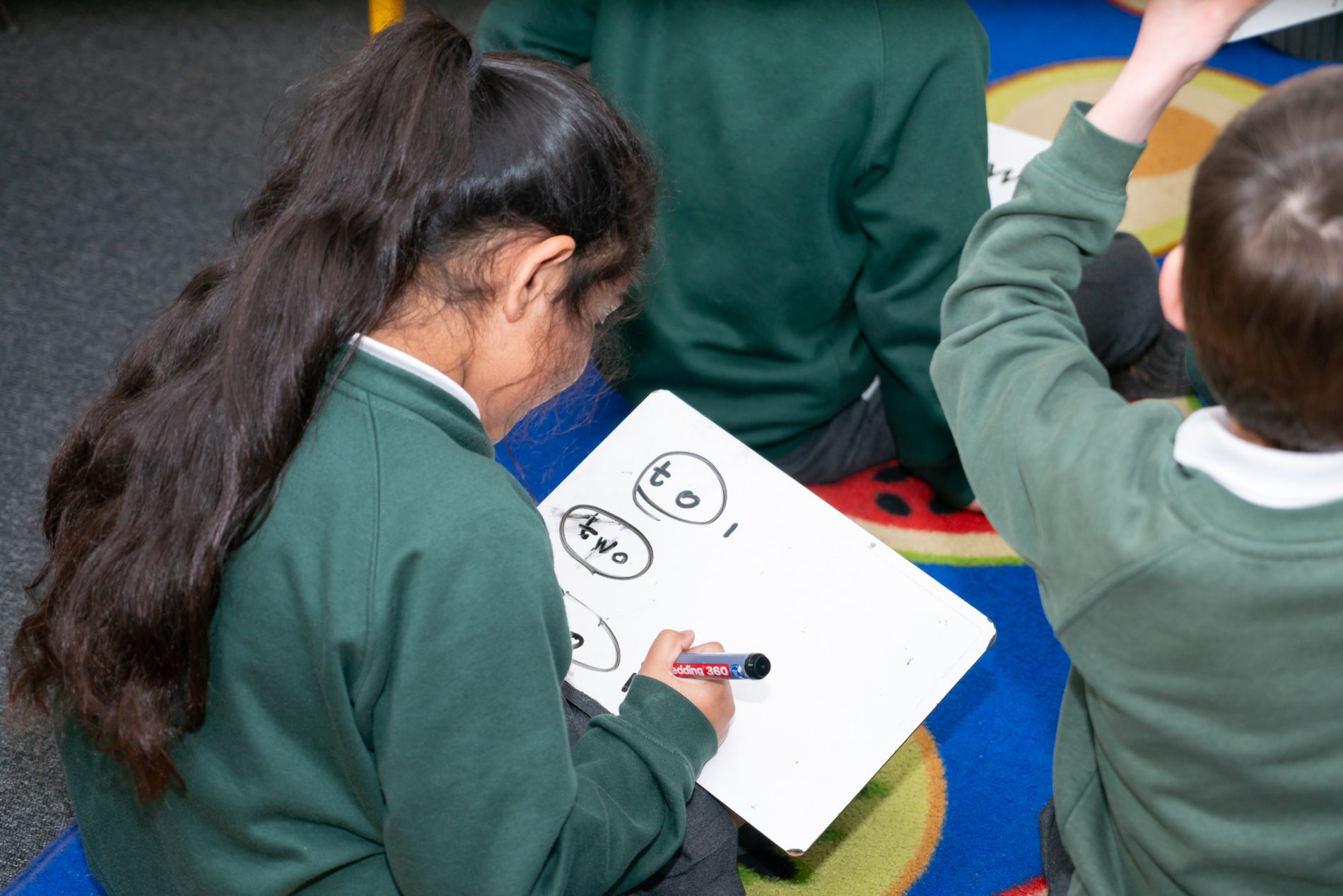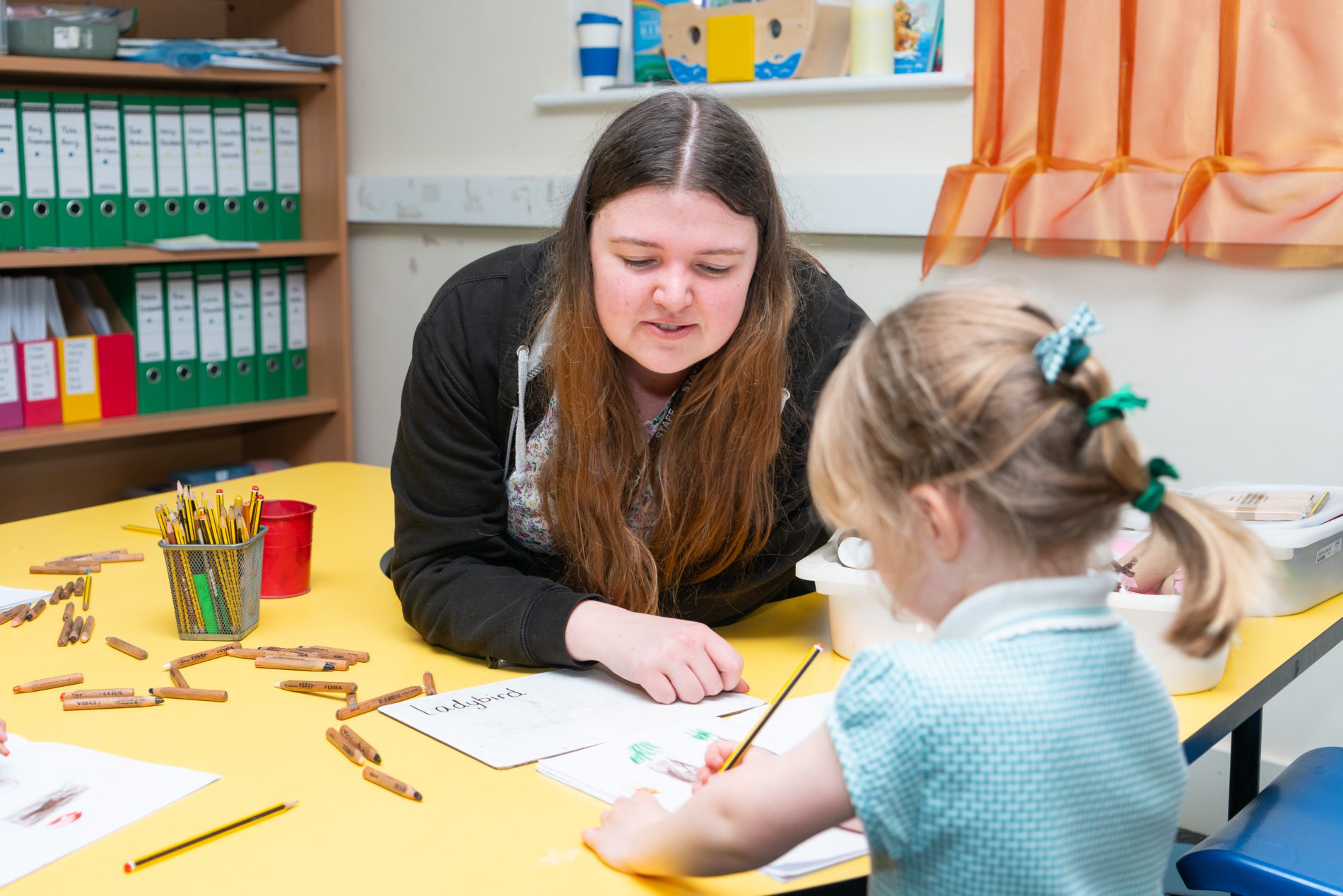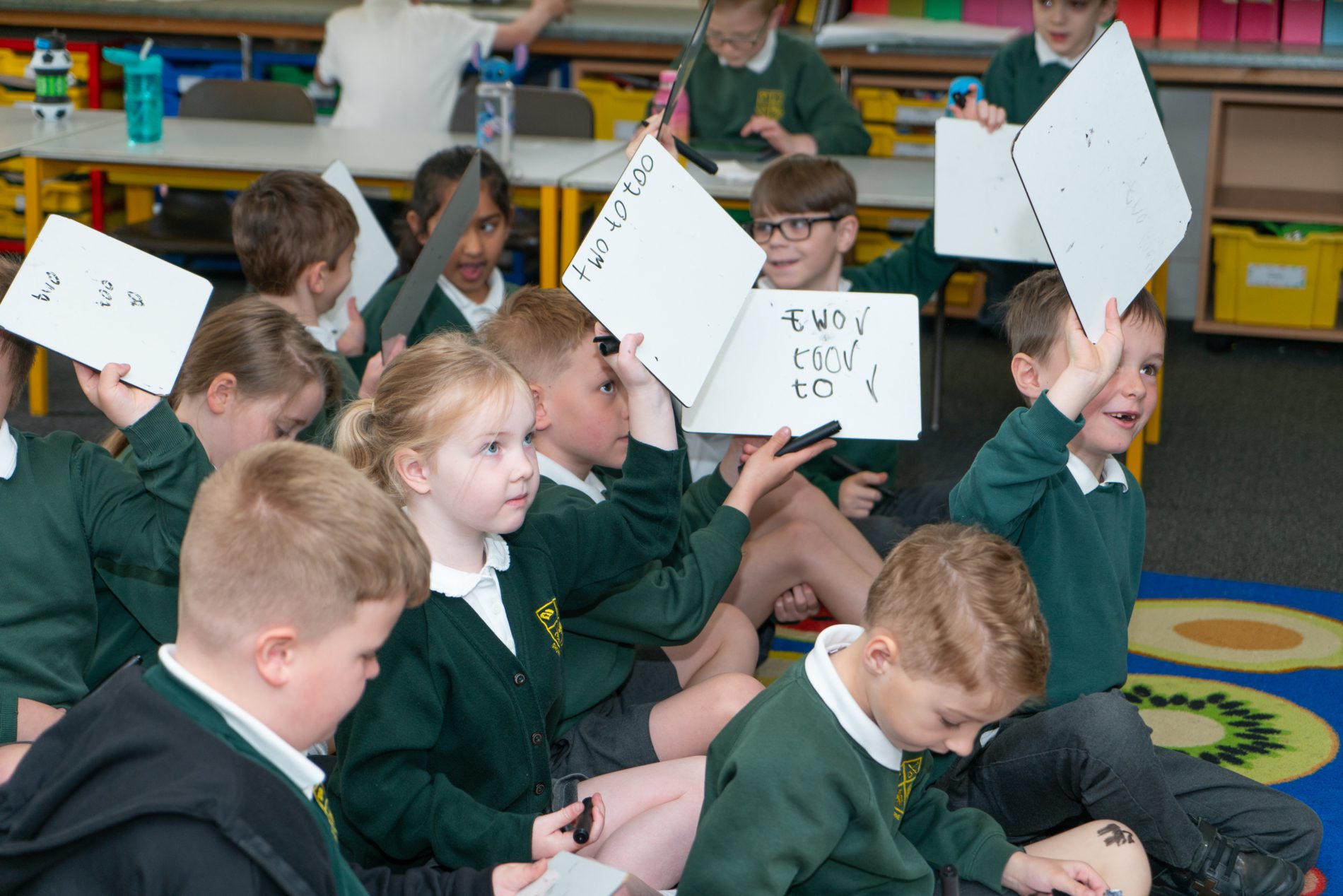Phonics Subject Leader: Miss L Whitbread
At Shorne CofE Primary School Phonics is taught using the structure of our systematic synthetic programme ‘Little Wandle Letters & Sounds’.
Little Wandle Letters and Sounds Revised is a complete systematic synthetic phonics programme (SSP) developed for schools by schools, based on the original Letters and Sounds but extensively revised to provide a complete teaching programme meeting all the expectations of the National Curriculum, the Ofsted Deep Dive into reading and preparing your children to go beyond the expectations of the Phonics Screening Check.

Intent
At Shorne C of E Primary School, we use the Little Wandle Letters and Sounds Revised programme. Our phonics teaching begins when the children enter Reception and form the basis of reading throughout Key Stage One and into Key Stage Two for those children who require it. Following the clearly sequenced progression of sounds (see progression document), the children learn that each letter of the alphabet represents a different sound as well as different combinations of letters making different sounds (digraphs and trigraphs). This progression of sounds allows our children to build upon their prior knowledge and develop the skills to decode unfamiliar words and master a range of phonetic strategies. All members of staff are fully trained to teach phonics, regardless of the year group they are in, to ensure continuous provision and support for children who may require additional support and to ensure that teaching strategies are continuously embedded in every child’s learning.


Implementation
In Reception and Year 1, phonics is taught daily with a review session on a Friday which recaps the learning that has taken place during the week. Throughout the week, children will be introduced to new graphemes and decoding strategies as well as common exception words (words that cannot be decoded using phonetic strategies).
Phonics starts within the first three weeks of Reception, with lessons starting at 10 minutes and building towards 30 minutes over the year. By the end of Reception, the children will have been taught up to Phase 4. By the end of Year 1 the children would have been taught up to Phase 5.
For any child who does not pass the phonics screening or still requires phonics intervention, phonics teaching continues in Years 2 and 3.
Impact
The children will draw on their knowledge of vocabulary to understand texts. They will:
- Identify/explain key aspects of fiction and non-fiction texts.
- Identify and explain the sequence of events in the text.
- Inference and deduction.
- Prediction.
Children will then take this book home after their three sessions. We aim for the children to be able to read the book with 90% fluency
Every child in Year 1 will take the Phonics Screening Check in the summer term, this also applies to any child in Year 2 who did not pass the phonics screening when they were in Year 1.
Please see the link to Little Wandle Letters and Sounds Revised website for further information.

Phonics in Each Stage
In Reception and Year 1, phonics is taught daily with a review session on a Friday which recaps the learning that has taken place during the week. Throughout the week, children will be introduced to new graphemes and decoding strategies as well as common exception words (words that cannot be decoded using phonetic strategies).
Phonics starts within the first three weeks of Reception, with lessons starting at 10 minutes and building towards 30 minutes over the year. By the end of Reception, the children will have been taught up to Phase 4.
In Reception children apply their phonetic knowledge by using fully decodable books in small group practice reading sessions. These sessions are 15 minutes long and take place 3 times a week, with each session focusing on a different skill; starting with one session a week. At the beginning of each session, the children go over different sounds, words and common exception words that will be in the text and then have the opportunity to read through the text at their own pace.
The first session focuses on decoding and identifying words and sounds in the text, the second session focuses on prosody (becoming a reader and reading with expression) and the third session focuses on comprehension, using our reading toolkit.
By the end of Year 1, the children would have been taught up to Phase 5.
In Reception and Year 1, and when appropriate, in Year 2 and beyond, children apply their phonetic knowledge by using fully decodable books in small group practice reading sessions. These sessions are 15 minutes long and take place 3 times a week, with each session focusing on a different skill (Reception pupils start with one session a week and build towards 3 sessions over the year). At the beginning of each session, the children go over different sounds, words and common exception words that will be in the text and then have the opportunity to read through the text at their own pace. The first session focuses on decoding and identifying words and sounds in the text, the second session focuses on prosody (becoming a reader and reading with expression) and the third session focuses on comprehension, using our reading toolkit.
You will have an eBook copy of the text your child is reading that week so you can read the book together at home. This information will be shared with your child’s class teacher.
Catch up Sessions
Children are continuously assessed in every lesson and formally assessed at the end of every term and any child who is identified as falling behind will attend either daily small group or individual catch-up sessions to ensure they quickly catch up. Parents will be informed if their child is attending these sessions and what steps to take to support their learning at home. Small group sessions may take place across different year groups (e.g., Years 1 and 2 together).
Any child who is identified as falling behind is reassessed within 3 weeks.
SEND Information
Interventions, support, and challenges are constantly revised and adapted to ensure all children are supported in achieving learning. Learning is robustly and continuously monitored and assessed to ensure gaps in learning are addressed. Teachers and support staff offer adaptive teaching to enable access for all, and may provide scaffolds, pre-teaching, and other support and intervention, as outlined in the Kent Mainstream Core Standards. Pupils may also be supported to access learning through the use of Clicker software.
Phonics Assessments
Phonics Screening Check
Children in Year 1 throughout the country will all be taking part in a Statutory Phonics Screening Check in June. Children in Year 2 will also take the check if they did not achieve the required result when in Year 1 or if they have not taken the test before. The phonics screening check is designed to confirm whether individual children have learnt phonic decoding and blending skills to an appropriate standard.
What Happens During the Screening?
The test contains 40 words. Each child will sit one-to-one and read each word aloud to their teacher. The test will take approximately 10 minutes per child, although all children are different and will complete the check at their own pace. The list of words the children read is a combination of 20 real words and 20 pseudo words (nonsense words). The pseudo-words will be shown to your child with a picture of an alien. This provides the children with a context for the pseudo word which is independent of any existing vocabulary they may have. Pseudo words are included because they will be new to all pupils; they do not favour children with a good vocabulary knowledge or visual memory of words. We prepare children by introducing them to ‘alien’ words throughout their daily lessons using sounds that they have learnt. The pass mark last year was 32/40.
KS2 – Phonics
If the children need further support in their Phonics when they move into KS2, they will be put in an intervention that is tailored to them.
Phonics Resources
To view our Phonics and Early Reading Policy, please view here.

